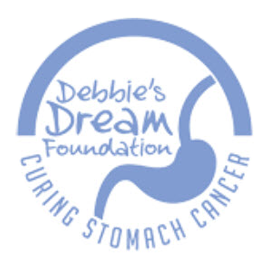Articles
June 21, 2017- Docetaxel-Based Triplet New Standard in Gastric Cancer
A new standard of treatment of care for resectable gastric or gastroesophageal (GEJ) adenocarcinoma is perioperative chemotherapy with docetaxel-based triplet. The MAGIC trial established perioperative epirubicin, cisplatin, and fluorouracil (ECF) as a standard of treatment for patients with operable esophagogastric cancer, but outcomes remain unsatisfactory. With the new method of treatment, docetaxel-based triplet FLOT, the…
Read MoreJune 20, 2017- Work Related Stress and Cancer: Recent Study Examines the Connection
Researchers from the University of Quebec and University of Montreal conducted a study on how prolonged exposure to work-related stress can greatly impact an individual’s health and may increase their risks of developing certain kinds of cancers. The results showed that employment in at least one stressful job increase the odds of various cancers, including…
Read MoreJune 13, 2017 – Dr. Fuchs Discusses Immunotherapy in Gastric Cancer
Charles S. Fuchs, MD, MPH, director, Yale Cancer Center, physician-in-chief, Smillow Cancer Hospital, 2017 Giant of Cancer Care in Gastrointestinal Cancer, and a member of the Debbie’s Dream Foundation Medical Advisory Board discusses new strides in immunotherapy for treating gastric cancer. While therapies are common in the treatment of various cancers, Dr. Fuchs emphasizes the…
Read MoreJune 7, 2017- Gastric Linitis Plastica Diagnosis Uses Endoscopic and Radiologica Studies Approach
Linitis Plastica (LP) is one of the most serious forms of gastric cancer. It is a subtype of gastric cancer that presents itself in about 20% of gastric adenocarcinoma cases and can be identified as a “signet ring” via biopsy. With LP, most patients have a 5-year survival of less than 10%, making an early…
Read MoreJune 5, 2017- The Optimal Timing for Surgery After Neoadjuvant Chemotherapy in Advanced Gastric Cancer
Perioperative chemotherapy is the standard method of care for patients with locally resectable gastric cancer. This is based on the results of the British MAGIC and the French FNCLCC/FDD trails, both of which showed a significant overall survival benefit for those who received perioperative chemotherapy compared to those who only had surgery. For those enrolled…
Read MoreMay 23, 2017- FDA approves first cancer treatment for any solid tumor with a specific genetic feature
Today, the FDA approved Merck’s Keytruda for microsatellite instability-high (MSI-high) cancers, a tumor type identified by genetic testing. About 4-5% of stomach cancer patients are MSI-high and are now eligible for treatment after at least one prior therapy. This is the first time the FDA has approved a cancer treatment based on a common biomarker…
Read MoreFebruary 14, 2017- How Cancer Tumors Exploit Neuronal Signals
A new paper by neuroscientists at Stanford University reviews how tumors exploit neuronal signals. It has been noted that cancer cells not only grow near nerves, but also respond to chemical signals neurons secrete. Cancer cells are known for their ability to use the body for their own growth by using blood vessels as a…
Read MoreJanuary 25, 2017 – Racial, Ethnic Disparities Identified in Young Gastric Cancer Patients
At the recent Gastrointestinal Cancers Symposium, Dr. Ibrahim Nassour, MD and colleagues at the University of Texas Southwestern Medical Center in Dallas presented data that outlined the different characteristics of gastric cancer patients by race and ethnicity. The researchers looked at the information of over 5,000 patients with gastric adenocarcinoma under the age of 45.…
Read MoreJanuary 23, 2017 – New Insight into Origin of Stomach Cancer
It has been previously accepted that gastric cancer follows the damage and subsequent loss of acid-secreting cells in the stomach, but recent studies published in Gastroenterology by researchers at the Washington University School of Medicine and the Siteman Cancer Center of Barnes-Jewish Hospital challenged that paradigm. In a mouse model, the researchers found that damage…
Read MoreJanuary 19, 2017 – Opdivo (nivolumab) Demonstrated Efficacy and Improved Survival in Patients with Previously Treated Advanced Gastric Cancer in a Randomized Phase 3 Study
In a press release, Bristol-Myers Squibb announced the results of their phase 3 randomized clinical trial (ONO-4538-12) conducted in Japan, Korea and Taiwan to assess the safety and efficacy of Opdivo (nivolumab) in patients with unresectable, previously-treated advanced or recurrent gastric and gastroesophageal cancer. The 12-month overall survival (OS) was 26.6% in the patients who…
Read More